Lok Chan
On The Stability of Moral Preferences: A Problem with Computational Elicitation Methods
Aug 05, 2024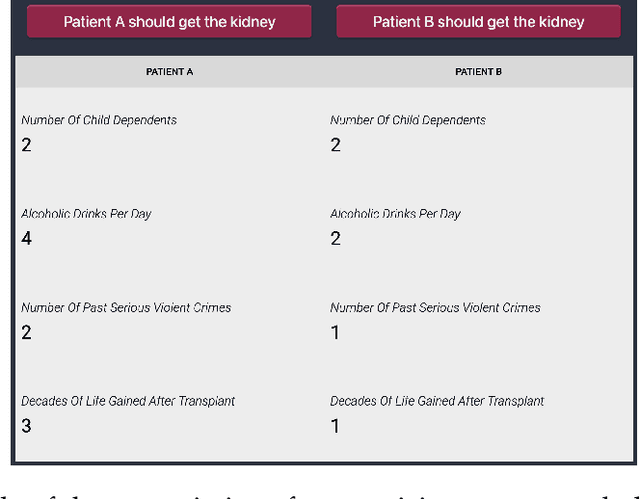
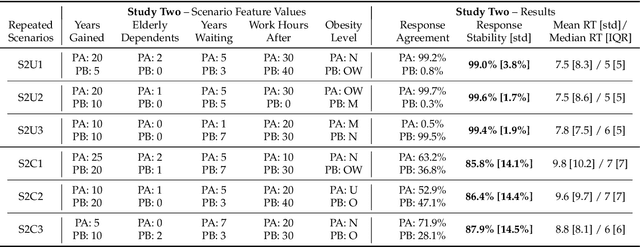
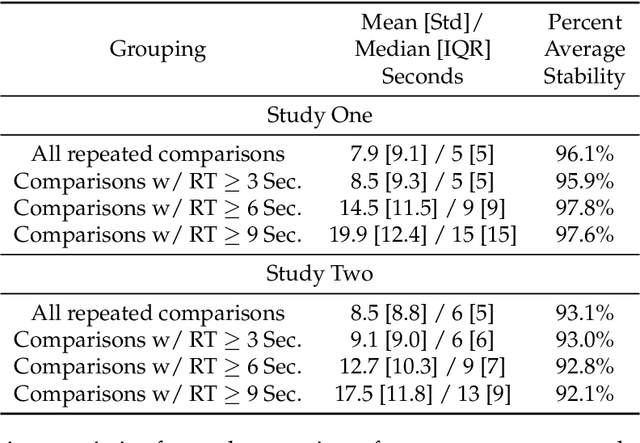
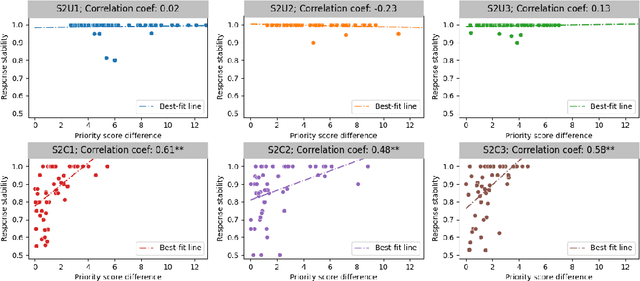
Abstract:Preference elicitation frameworks feature heavily in the research on participatory ethical AI tools and provide a viable mechanism to enquire and incorporate the moral values of various stakeholders. As part of the elicitation process, surveys about moral preferences, opinions, and judgments are typically administered only once to each participant. This methodological practice is reasonable if participants' responses are stable over time such that, all other relevant factors being held constant, their responses today will be the same as their responses to the same questions at a later time. However, we do not know how often that is the case. It is possible that participants' true moral preferences change, are subject to temporary moods or whims, or are influenced by environmental factors we don't track. If participants' moral responses are unstable in such ways, it would raise important methodological and theoretical issues for how participants' true moral preferences, opinions, and judgments can be ascertained. We address this possibility here by asking the same survey participants the same moral questions about which patient should receive a kidney when only one is available ten times in ten different sessions over two weeks, varying only presentation order across sessions. We measured how often participants gave different responses to simple (Study One) and more complicated (Study Two) repeated scenarios. On average, the fraction of times participants changed their responses to controversial scenarios was around 10-18% across studies, and this instability is observed to have positive associations with response time and decision-making difficulty. We discuss the implications of these results for the efficacy of moral preference elicitation, highlighting the role of response instability in causing value misalignment between stakeholders and AI tools trained on their moral judgments.
Indecision Modeling
Dec 15, 2020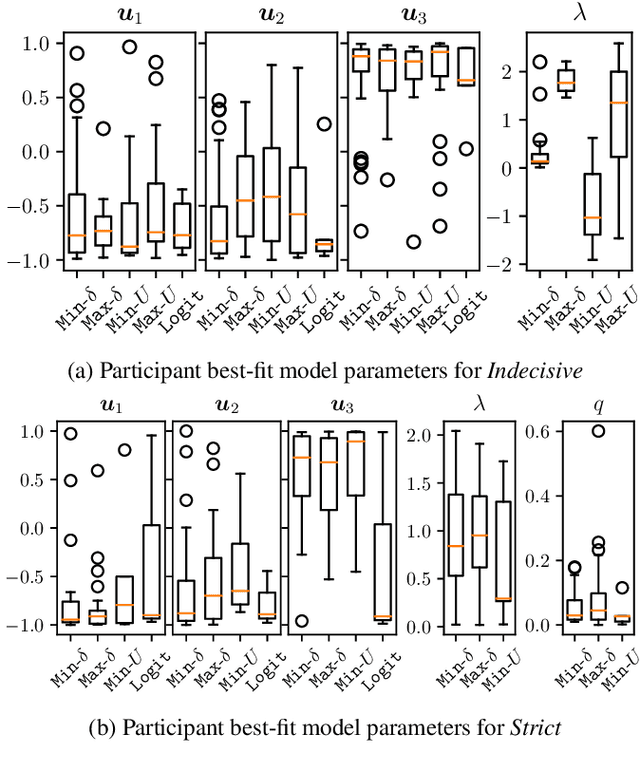

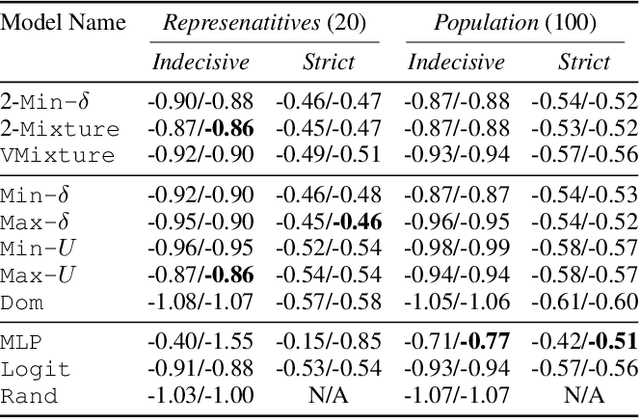
Abstract:AI systems are often used to make or contribute to important decisions in a growing range of applications, including criminal justice, hiring, and medicine. Since these decisions impact human lives, it is important that the AI systems act in ways which align with human values. Techniques for preference modeling and social choice help researchers learn and aggregate peoples' preferences, which are used to guide AI behavior; thus, it is imperative that these learned preferences are accurate. These techniques often assume that people are willing to express strict preferences over alternatives; which is not true in practice. People are often indecisive, and especially so when their decision has moral implications. The philosophy and psychology literature shows that indecision is a measurable and nuanced behavior -- and that there are several different reasons people are indecisive. This complicates the task of both learning and aggregating preferences, since most of the relevant literature makes restrictive assumptions on the meaning of indecision. We begin to close this gap by formalizing several mathematical \emph{indecision} models based on theories from philosophy, psychology, and economics; these models can be used to describe (indecisive) agent decisions, both when they are allowed to express indecision and when they are not. We test these models using data collected from an online survey where participants choose how to (hypothetically) allocate organs to patients waiting for a transplant.
 Add to Chrome
Add to Chrome Add to Firefox
Add to Firefox Add to Edge
Add to Edge